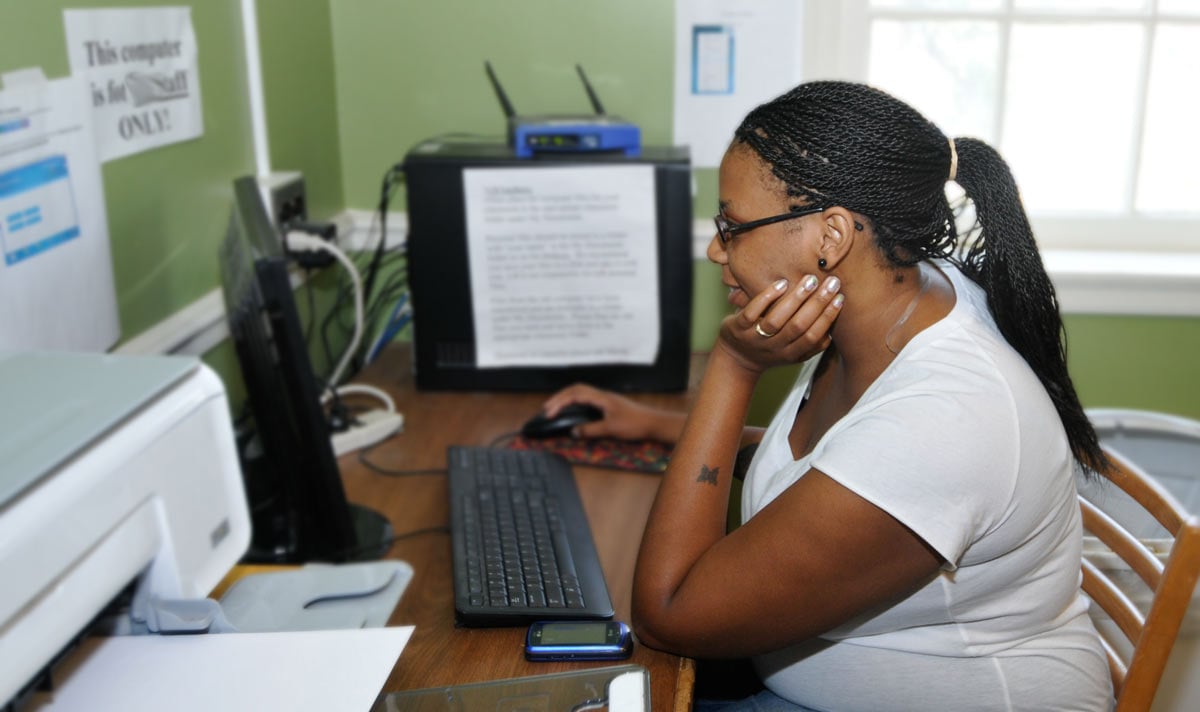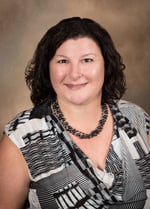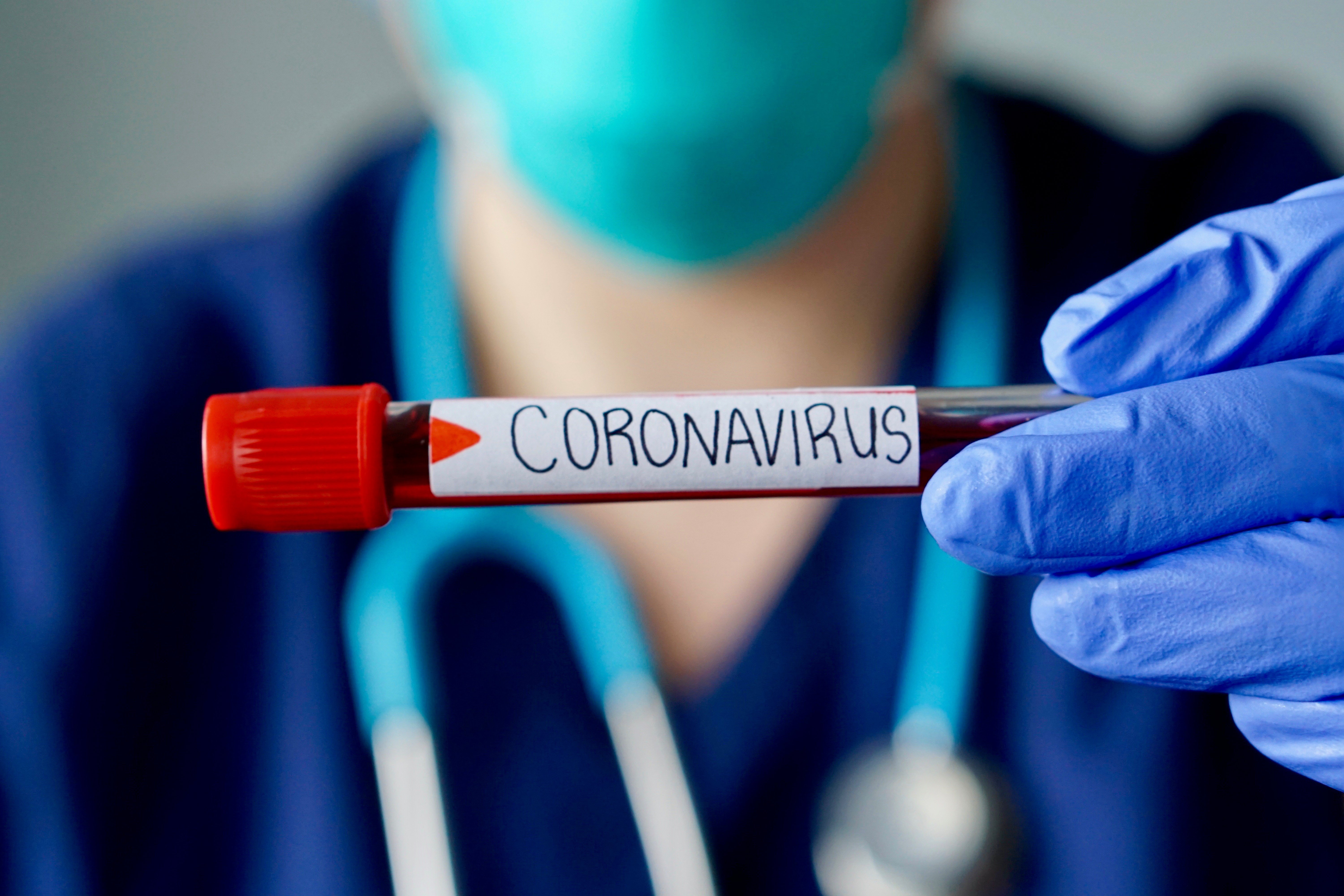
Being a reflective practitioner means continuously asking yourself questions about your practice, evaluating your decisions and creating plans to apply new knowledge. Self-reflection is not a difficult skill to learn, but it can be challenging to integrate reflection into your daily practice. Sometimes it is easier to stay where we are, rather than make changes to our practice. Sometimes, we might not even realize a change is necessary.
One way that early childhood education (ECE) professionals can employ self-reflection to improve practices and enhance skills is to ask themselves some of the following questions before, during and after engaging in professional development (PD).
Questions to ask yourself prior to professional development:
- What is working in my program? Be sure to take time to recognize your strengths! Self-reflection helps you identify areas where you are thriving as well as areas that can be enhanced.
- What are the smoothest times of day for the children? Consider the nonverbal communication that you receive from children when you are reflecting. You can learn quite a bit about your practice by taking note of how children respond to you and the environment you have created.
- What are the most challenging times of day for the children? Make note of when children seem to become disengaged from learning and following the routine. These clues might help you identify areas of opportunity for growth.
- What parts of my job challenge me the most? If you can tune into the times of day that challenge you the most, you might be able to pinpoint skills that you could improve through additional training, coaching and action planning.
- Am I hearing repeated concerns from families/supervisors/coworkers? Sometimes, the clues we need to pick up on come at us in the form of feedback from others. We might not “hear” those concerns the first time they are delivered, but if they are repeated, they become an opportunity for growth.
- What skill or information would make my job easier? Have fun with this process and get creative. Ask yourself, “In a perfect world, what would make my job easier?" You might be surprised where you land after digging into the statement, “My job would be so much easier if there were no more challenging behaviors.”
Questions to ask yourself during professional development:
- Am I fully present and ready to receive new information or perspectives? ECE professionals are busy and juggle many responsibilities. Making the shift from taking care of children and families to being prepared to focus on your needs can be challenging. If possible, take a few moments to breathe deeply and remind yourself that this PD experience belongs to you; it is for your benefit.
- Am I listening/reading with an open mind? You may also have negative feelings about having to participate in professional development sessions. It is important to recognize when this is happening. If it is a course you are required to take, make the most of it. Listen for new ideas, think about how you can use familiar information in new ways, brainstorm with co-workers, and make an effort to step out of your normal way of doing things.
- Is my participation contributing positively to this event or conversation? It is important to ask questions and seek clarification during PD events. When doing so, consider whether you are moving the conversation forward in a positive manner or putting up defensive walls or blaming others for the challenges you face.
- How might I use this new (or old) information in my program? The dynamics of early childhood education are always changing. You may have tried a strategy in the past that was not successful. That does not mean that the strategy will not be successful with a different child or group of children.
- Even if I can’t use this exact strategy, could I possibly adapt it in some way? Often, information in PD sessions is delivered in a general way. You may need to adapt a given strategy a bit to make it work in your environment. Either ask the facilitator for ideas on adapting the strategy, or brainstorm ideas with other participants during group time.
Questions to ask yourself after professional development:
- Do I need additional information and where can I find out more about this new topic? A two-hour training session is likely not long enough to completely delve into all of the details of a topic. Reach out to the facilitator for additional resources or do your own research to gather more information.
- Who can I enlist to help me with this strategy? Who are the people in your life who can help you implement new strategies? Who can you brainstorm with? Who can you share with who will hold you accountable to your action plan? Identify these people, work with them on your goals, and return the favor by being a resource for them from time to time.
- How can I introduce this new information to coworkers, children and families? Determine the best way to introduce your new ideas to the people who will be impacted by the change.
- What materials or resources do I need before implementing the new plan? Identify any outside resources of materials you will need and determine how you will obtain them.
- How is the new strategy working? Evaluate your new practice on a regular basis and make adjustments as needed. Gather feedback from children, families, and coworkers.
These are just a few examples of questions you can ask yourself as you engage in professional development. Using self-reflection, you are more likely to capitalize on the long hours you spend in professional development each year. By reflecting in this manner, you will be able to implement new practices in your program, meet the needs of the children in your care and truly grow as a professional.
 Leslie Coleman, Education Director at ChildCare Education Institute, has over 25 years of experience in the early childhood education (ECE) field. She has held positions ranging from preschool teacher and specials needs inclusion consultant in addition to her work developing and delivering professional development for ECE professionals. Ms. Coleman has developed engaging training content and used a number of in-person and online delivery methods to help participants reflect on and make enhancements to their interactions with children and families.
Leslie Coleman, Education Director at ChildCare Education Institute, has over 25 years of experience in the early childhood education (ECE) field. She has held positions ranging from preschool teacher and specials needs inclusion consultant in addition to her work developing and delivering professional development for ECE professionals. Ms. Coleman has developed engaging training content and used a number of in-person and online delivery methods to help participants reflect on and make enhancements to their interactions with children and families.




